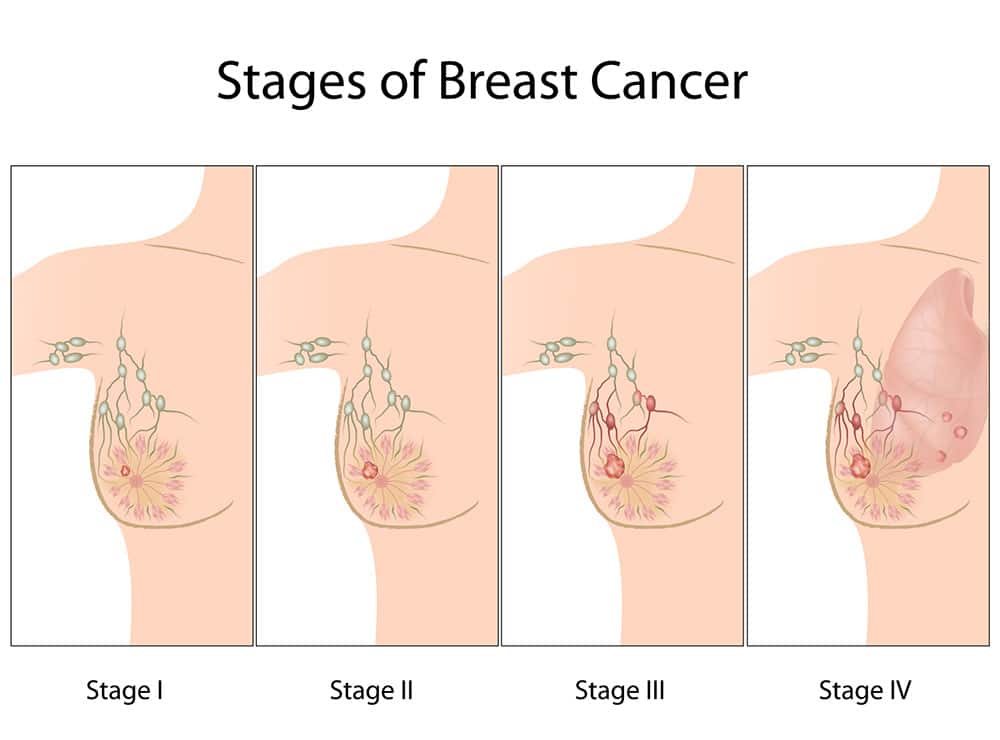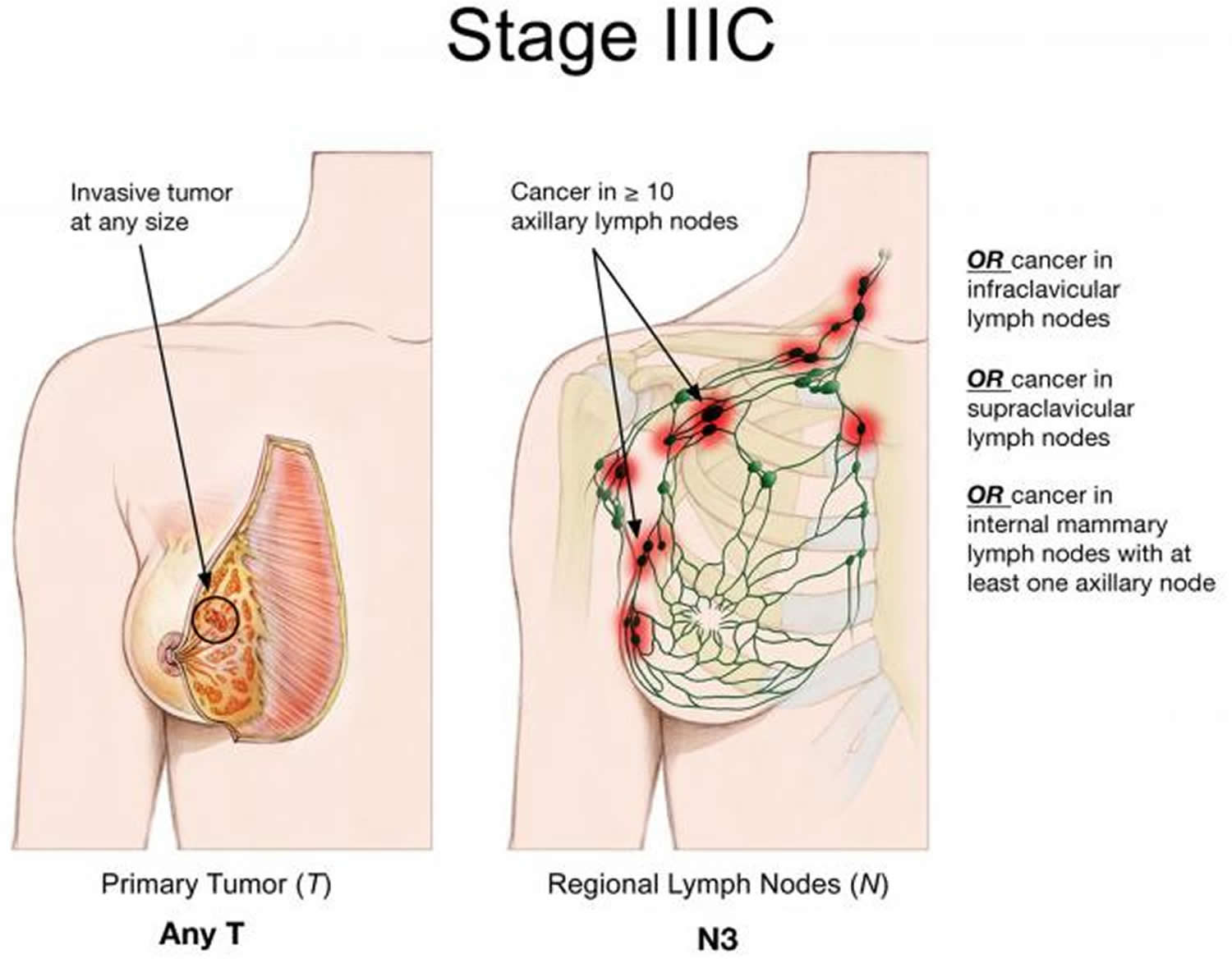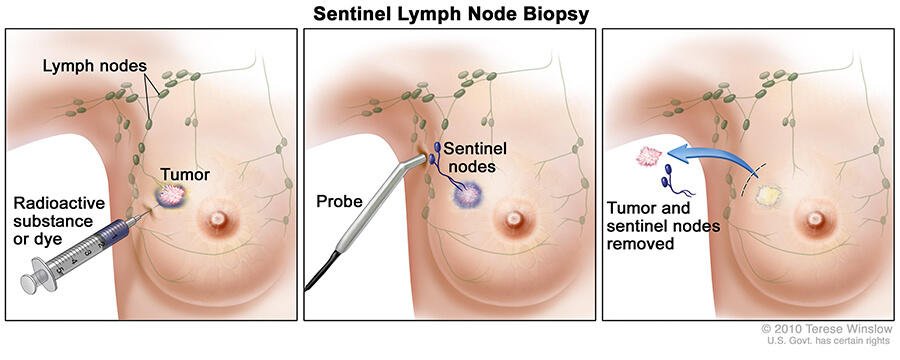What Is Breast Reconstruction
Breast reconstruction may help restore the look and feel of the breast after a mastectomy. Many women who have had a breast removed opt for breast reconstructionin some limited cases, at the same time as the mastectomy, but more often after the mastectomy procedure. With immediate reconstruction, a surgeon performs the first stage to rebuild the breast during the same operation as the mastectomy. A method called skin-sparing mastectomy may be used to save enough breast skin to cover the reconstruction.
Breasts may be rebuilt using saline implants or autologous tissue . Most breast reconstructions performed today use breast implants. For some reconstructions, more than one surgery may be needed.
Mastectomy with reconstruction done on the same day is an option for many women, but the best approach for an individual should be determined through a discussion of various options between the patient and her surgeon.
The decision to have reconstruction is a personal one. Some women choose not to have reconstruction. Others believe it helps their appearance and recovery.
How Does Breast Cancer Start
Breast cancer occurs when cells in the breast grow out of control. Different kinds of breast cells develop into different . Most breast cancers begin in the breast ducts or lobules . These are known respectively as invasive ductal carcinoma and invasive lobular carcinoma. Other less common types of breast cancer include inflammatory breast cancer and ductal carcinoma in situ.
Though breast cancer is most common in women, men can develop it as well. A mans lifetime risk of breast cancer is about 1 in 883. This year, the American Cancer Society estimates that about 2,620 men will be diagnosed with breast cancer.
What Are The Implications
There may be various reasons why a woman is not ready to start chemotherapy within four weeks. This study suggests there are compelling reasons to avoid non-essential delays.
However, absolute risk will vary depending on cancer stage and characteristics. For example, if a womans 10-year risk of death is 20%, with prompt chemotherapy this could increase to 21% with four-week delay. A 60% risk could increase to 65%. Therefore risks need to be balanced for the individual and electronic tools, such as Predict, are available to help with this.
The key message for hospitals and commissioners is to manage waiting lists and clinics in a way that minimises unnecessary delays in starting chemotherapy after surgery.
Read Also: Breast Cancer Recurrence Symptoms Pain
Take Advantage Of Patient Navigators
Though intuition would tell us that people who are insured would experience shorter delays before surgery, that doesn’t appear to be true. A large 2019 study in PLoS One looked at over 1.3 million people to see how time to initial treatment affected survival. In this study, they found that with early stage breast cancer, waiting more than 35 days between diagnosis and surgery reduced survival rates. Surprisingly, uninsured people had faster times to initiation of treatment.
While the reasons weren’t certain, it was thought that perhaps those who were insured lost precious time going through prior authorization procedures for diagnostic tests and treatment. Difficulty navigating the maze of large treatment centers may also be at play, and the authors made mention of recent clinical trials showing patient navigation could have a beneficial effect on assuring timely cancer care.
How Much Experience Do You Have Treating My Type And Stage Of Breast Cancer

Oncologists who are experienced in not only treating breast cancer but in your specific type of breast cancer are typically better equipped to explain and deliver the full range of treatment options. You should feel comfortable asking your doctor about his or her experience. Doctors and the hospitals they may work for are not required by law to publish the survival rates of the patients they treat, but some choose to do so. Others may be willing to provide these statistics upon request.
Read Also: Breast Cancer Type 3
What Causes Breast Cancer Recurrence
The goal of cancer treatments is to kill cancer cells. But, cancer cells are tricky. Treatments can reduce tumors so much that tests dont detect their presence. These weakened cells can remain in the body after treatment. Over time, the cells get stronger. They start to grow and multiply again.
Even surgery to remove a cancerous tumor isnt always 100% effective. Cancer cells can move into nearby tissue, lymph nodes or the bloodstream before surgery takes place.
Has The Cancer Spread To My Lymph Nodes Or Other Organs
Cancer may spread from the site where it originated to other parts of the body. When cancer cells move away from a tumor, they may travel through the bloodstream to distant organs. If they travel through the lymph system, the cancer cells may end up in lymph nodes. The lymph nodes in the underarm are the first-place breast cancer is most likely to spread. Your doctor may perform a biopsy to check for the presence of cancer cells. The sample is examined by a pathologist who checks the nodes under a microscope. That exam determines lymph node status.
The spread of cancer to another part of the body is called metastasis. If breast cancer has metastasized to other areas of the body, it is categorized as stage 4 breast cancer. Typically, breast cancer metastasizes primarily to the lungs, liver, brain, regional lymph nodes and bone.
You May Like: Level 3 Breast Cancer
Should I Get A Second Opinion
A second opinion may confirm your original diagnosis and treatment plan, provide more details about the type and stage of your breast cancer, raise additional treatment options not considered, or lead to a recommendation for a different course of action. A second opinion may also help you feel more confident in your treatment decisions and help you find a doctor you feel comfortable with.
Playing An Active Role
You play an active role in making treatment decisions by understanding your breast cancer diagnosis, your treatment options and possible side effects.
Together, you and your health care provider can choose treatments that fit your values and lifestyle.
|
The National Academy of Sciences released the report, Delivering High-Quality Cancer Care: Charting a New Course for a System in Crisis in 2013. Susan G. Komen® was one of 13 organizations that sponsored this study. The report identified key ways to improve quality of care:
|
Read Also: Symptoms Of Stage 4 Breast Cancer
Managing Treatment Side Effects
Breast cancer treatments can cause a variety of side effects. Some side effects may be short-lived and resolve on their own. Others may require treatment to manage.
For example, a persons doctor may:
- adjust their medication regimen if they develop side effects from medication
- refer them to a physical or occupational therapist if their physical function declines after treatment
- recommend breast reconstruction surgery if they are dissatisfied with the shape or look of their breast following breast cancer surgery
Breast cancer and cancer treatments may also affect a persons mental health. If they are experiencing mental health challenges, their doctor may prescribe medication, counseling, or a combination of both.
A person should let their doctor know about any changes in their physical or mental health during follow-up appointments, even if they are not certain that the changes are related to breast cancer or cancer treatments. Some treatment side effects may take months or years to appear.
Doctor Visits And Tests
Typically, you should see your doctors every 3 months for the first 2 years after treatment ends, every 6 months during years 3 through 5, and then annually for the rest of your life. Your personal schedule will depend on your diagnosis.
Get regular mammograms. If you had a total mastectomy, you only need one of the other breast. Youâll likely need a mammogram within 6 12 months after finishing your breast cancer treatment and at least annually after that.
Routine chest X-rays and blood tests in women who have no symptoms of cancer arenât always reliable. If you had chemotherapy, youâll need regular blood tests to make sure that your body has recovered from it.
Recommended Reading: Did Anne Hathaway Get A Nose Job
Keeping Cancer In Its Place
Its frustrating when you dont know exactly how long this nightmare will last, but every step you take has the opportunity to give you hope if youre willing to treat it as progress. Whether your battle with cancer lasts for three months, six months, or a year, the most important thing is to create a support network you can rely on. Explain to family and friends what you really need from them rather than letting their fear control your life and find a doctor you can really trust.
When Do Signs And Symptoms First Appear

Typically, cancer signs and symptoms first appear when the cancerous tumor or mass has grown large enough that it begins to push against nearby organs and tissue, blood vessels, and nerves.
This can lead to pain, a change in how the nearby organs function, or both. A brain tumor pressing against the optic nerve will affect vision, for example.
Some cancers are fast moving, such as liver and pancreatic cancers. Prostate cancer, however, is usually slow moving. This is why many older men with prostate cancer forego treatment theyre more likely to die with prostate cancer than because of it.
Screenings for certain cancers should be part of your normal preventive healthcare. These include cancers of the:
- prostate
- cervix
- skin
Your age, sex, family history, and your own medical history will dictate when routine screenings should begin and how often they should be done.
If youre concerned about symptoms associated with various cancers, then you shouldnt hesitate to see your doctor. You can connect to a physician in your area using the Healthline FindCare tool.
Recommended Reading: 3b Breast Cancer
If Your Cancer Comes Back
NHS England has a waiting time target for cancer that has come back . They say that you should start treatment within 31 days. This time starts from the meeting in which you and your doctor have agreed your treatment plan.
Scotland, Wales and Northern Ireland have not set this target. But you will start treatment as soon as possible.
Your Race And Ethnicity
White and Black women have the highest risk of developing breast cancer in their lifetime. Asian/Pacific Islander and Hispanic/Latina womens breast cancer rates fall in between two major groupings while American Indian and Alaska Native women are on the lowest end of risk.
While white women are more likely to develop breast cancer than Black women overall, they tend to be diagnosed at an older age . Black women have the highest breast cancer rates among women under age 40. Black women make up a higher percentage of triple-negative breast cancer cases.
What to do: If your race or ethnicity places you at higher risk, make sure you follow all screening recommendations to improve your chances of catching cancer early.
Recommended Reading: Third Stage Cancer
Other Risk Factors For Breast Cancer
Other factors that seem to increase risk include:
- not having children or having children after the age of 30
- early age at first period
- later age of natural menopause
- alcohol intake
- obesity or gaining a lot of weight after menopause
- using the contraceptive pill the risk is higher while taking the pill and for about ten years after stopping use
- using hormone replacement therapy also known as hormone therapy the risk increases the longer you take it, but disappears within about two years of stopping use.
Having some of these risk factors does not mean that you will get breast cancer. Most women with breast cancer have no known risk factors, aside from getting older. More research needs to be done before we can be definite about risk factors.
In men, the main risk factor is abnormal enlargement of the breasts due to drug, chemical or hormone treatments. Men with Klinefelters syndrome can also be at risk. A mans risk increases where there is a family history of male breast cancer or a strong family history of breast cancer.
You May Like: Fish Test For Breast Cancer
Cancers Linked To Treatment With Tamoxifen
Taking tamoxifen lowers the chance of hormone receptor-positive breast cancer coming back. It also lowers the risk of a second breast cancer. Tamoxifen does, however, increase the risk for uterine cancer . Still, the overall risk of uterine cancer in most women taking tamoxifen is low, and studies have shown that the benefits of this drug in treating breast cancer are greater than the risk of a second cancer.
Also Check: Is Invasive Breast Cancer Curable
You May Like: Does Having Breast Cancer Shorten Life Expectancy
Taking Letrozole With Other Drugs
If youre taking any other prescribed or over-the-counter medicines, check with your treatment team or pharmacist if you can take these with letrozole.
Do not take other drugs containing oestrogen, such as hormone replacement therapy , while youre taking letrozole as this may interfere with its effectiveness.
Talk to your specialist, pharmacist or GP about any complementary therapies, herbal remedies or supplements you want to use before you start using them.
Chemobrain And Other After
You watched the last dose of chemotherapy drip from the IV into your veins six months ago. Your hair has really started to grow back. Maybe it’s curly where it once was straight, or a lot grayer than before, but it’s hair. You have eyebrows again. So why are you still so tired? When are you going to feel like you again?
“Your body has just been through an enormous assault, and recovery is a huge thing. You’re not going to just bounce back right away,” says oncologist Marisa Weiss, MD, founder of Breastcancer.org and the author of Living Beyond Breast Cancer. “You’ve been hit while you’re down so many times: with surgery and anesthesia, perhaps with multiple cycles of chemotherapy, perhaps with radiation.”
Two of the biggest hurdles women with breast cancer face post-treatment are fatigue resulting from chemotherapy and/or the accumulated effects of other treatments, and a phenomenon some women have dubbed “chemobrain” — mental changes such as memory deficits and the inability to focus. If you tried, you probably couldn’t pick two more frustrating and troubling side effects for women handling busy lives, managing careers, and caring for families.
“You expect them to go away as soon as treatment ends, and they don’t,” says Mary McCabe, RN, director of the Cancer Survivorship program at Memorial Sloan-Kettering Cancer Center in New York.
Ãâ
Don’t Miss: Signs And Symptoms Of Breast Cancer Stage 1
What If I Dont Want Cancer Treatment
No treatment is without some sort of risk. A decision to decline treatment has its own risks, too. Breast cancer patients may refuse their doctors treatment recommendations in whole or in part. Palliative care, designed to help control severe side effects such as pain, nausea or other symptoms, may help you manage your quality of life in the meantime.
Will My Breast Cancer Treatment Affect My Ability To Have A Baby

Women of childbearing age who are being treated for breast cancer may be concerned about the impact on their ability to conceive a child in the future. Treatments such as chemotherapy, radiation therapy or a combination of the two may affect fertility.
Chemotherapy may affect the functioning of the ovaries, reducing the number or quality of eggs. These anti-cancer drugs may also cause infertility in women who havent started menopause . The likelihood of infertility may depend on the type of chemotherapy drugs used, the dose given and your age.
Radiation therapy kills cancer cells by stopping or reducing their growth and division. Because radiation sometimes passes through healthy tissues, organs near the cancer site may be affected, potentially causing temporary or permanent infertility, especially if the radiation was delivered directly to the pelvic region.
You may want to consider your options for preserving fertility before starting treatment and discuss your questions and concerns with your oncologist.
Don’t Miss: Estrogen Positive Her2 Negative Breast Cancer
Reasons To Wait A Short While
While information suggests having surgery within a few weeks and chemotherapy within a month is ideal, there are some very good reasons why you may wish to wait a few days or a few weeks to begin treatment.
Most surgeons and oncologists will reassure you that you have some time, though there are always exceptions to that general rule . Advantages of taking some time include:
Breast Cancer Doctor Discussion Guide
Get our printable guide for your next doctor’s appointment to help you ask the right questions.
How Long Does It Take To Treat Breast Cancer
There are many factors to consider when determining how long breast cancer takes to treat. Even your doctor will only be able to give estimates based on how far your cancer has spread through the breast tissue and where it has metastasized if it has metastasized at all.
Their estimates are based on decades of experience and medical research. However, you should still ask your doctor to give you two estimates, one that imagines everything going to plan and one that factors in common complications. Taking all factors into consideration, the Mayo Clinic suggests that the average treatment length for breast cancer can be divided into two categories: early-stage breast cancer and advanced breast cancer. When trying to figure out how long breast cancer takes to treat, its important to start here.
If youre lucky and catch your condition early on, then your breast cancer treatment will generally last between three and six months. This assumes there is no further growth while you are undergoing treatment. In more advanced cases, you should typically expect a minimum of six months of treatment. How far it goes beyond that depends on how many surgeries you need and how far the cancer has spread.
Don’t Miss: Prognosis Of Stage 3 Breast Cancer